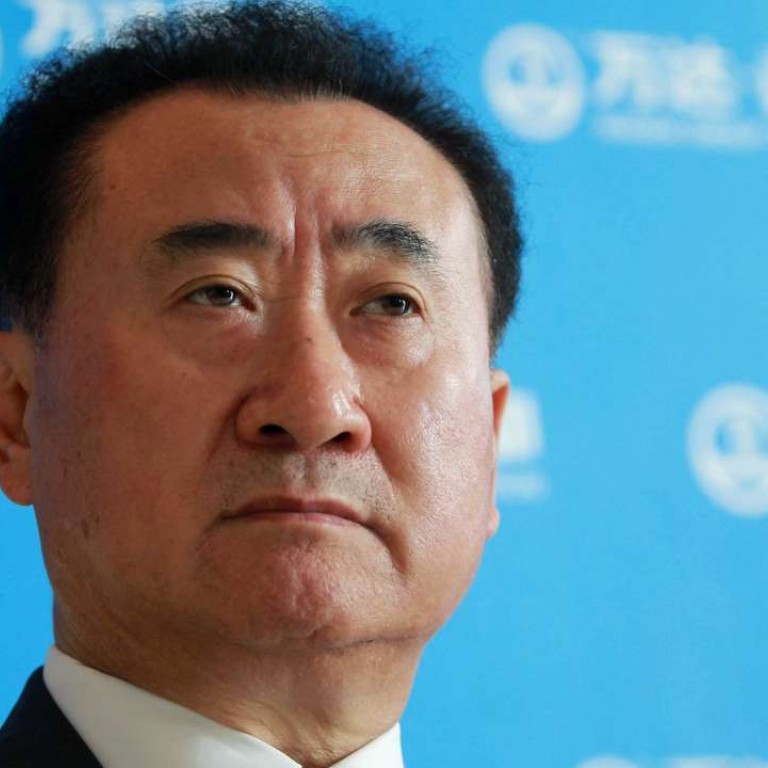
Wanda Commercial’s core profit up 20 pc on higher rentals, sales
Tycoon Wang Jianlin’s flagship property unit aims to accelerate expansion in China’s retail markets
Billionaire Wang Jianlin’s real estate flagship Dalian Wanda Commercial Properties saw its first-half core profit climb 20 per cent thanks to higher rental income and home sales.

In a statement to the Hong Kong stock exchange, chairman Ding Benxi said the company would adopt a “light and heavy” balanced growth strategy to “further accelerate the expansion of properties held and further enlarge our market share in China’s key retail markets.”
For the first half of 2016, revenue from rental and property management was 8.1 billion yuan, a 28 per cent increase from a year earlier. Revenue from home sales reached 25 billion yuan, a 19 per cent rise.
The country’s largest shopping mall operator saw average rent at its 142 Wanda Plazas increase to 102.8 yuan per square metre a month in the first half, from an average 97.59 yuan during 2015.
Last week, Wanda Commercial’s plan to delist from the Hong Kong stock exchange was approved by shareholders at a meeting in Beijing.
In an interview with Reuters this week, Wanda Group’s chairman Wang said the developer would re-list on the Shanghai stock exchange within the next three years either through an initial public offering (IPO) or a backdoor listing. Approval for an IPO could take two to three years, while a backdoor listing would need more than 12 months, he said.
Wang cited a lack of liquidity of Wanda Commercial’s Hong Kong shares as the reason for his delisting plan.
“We only listed 14 per cent of the company in Hong Kong, which means 86 per cent of shares are neither liquid nor could be pledged as collateral,” Wang said. “That’s not a real listed company.”
Wanda Commercial’s shares in Hong Kong remained unchanged on Thursday, closing at HK$52.75.
Wang in May offered HK$52.80 per share to buy out its Hong Kong-listed shares.

